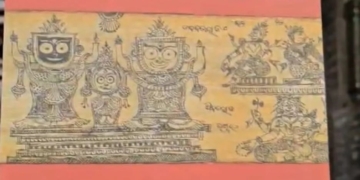The arrest of 22-year-old law student and influencer Sharmistha Panoli by Kolkata Police has triggered a political firestorm, with Andhra Pradesh Deputy Chief Minister Pawan Kalyan criticizing the move and demanding equal standards of secularism across communities.
Panoli was arrested over social media videos where she allegedly used abusive and communally charged language, criticizing Bollywood celebrities for their silence during Operation Sindoor—India’s retaliatory strike after the Pahalgam terror attack, which killed 26 civilians.
The FIR against her includes sections of the Bharatiya Nyaya Sanhita related to promoting enmity, outraging religious feelings, and provoking breach of peace. She was apprehended in Gurgaon after allegedly evading police notices, and has been placed in 14-day judicial custody.
In a strong statement on X, Jana Sena Party leader Pawan Kalyan acknowledged that Sharmistha’s comments were regrettable but emphasized her public apology and deletion of the video. He questioned the lack of legal action against Trinamool Congress (TMC) leaders who, according to him, insult Hinduism with terms like “gandha dharma” (filthy religion).
“Blasphemy must be condemned, always. Secularism isn’t a shield for some and a sword for others,” he said. “Where is the outrage when elected MPs mock Sanatana Dharma?”
TMC chief Mamata Banerjee, in her defense, accused the BJP of fueling communal tensions in Bengal, stating their version of Hinduism was divisive.
Meanwhile, the Kolkata Police issued a statement asserting that due process was followed in Panoli’s arrest. They clarified that attempts were made to serve her notices and that the arrest was lawfully executed under a court-issued warrant.
The incident has also drawn condemnation from BJP leader Suvendu Adhikari, who questioned why similar urgency is not shown when Hindu festivals face disruption or temples are vandalized.
Panoli’s case has reignited debates over freedom of speech, selective secularism, and equal treatment under the law in politically sensitive contexts.





























